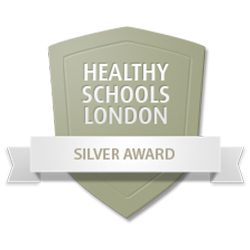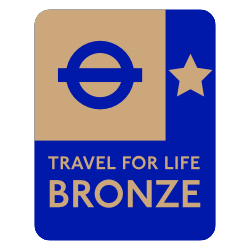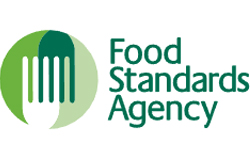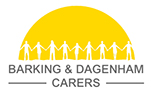We have an Additionally Resourced Provision (ARP) for children with autism. Like the NARP, this is funded by the Local Authority and they allocate places. Children enjoy a safe, dedicated space specially designed for their needs but placed firmly within our mainstream school.
What is the ARP?
This is a specialist provision where children from Reception to Year 6 whose primary need is Autism attend full time. It is a provision which can support children in making progress in several ways using the child’s Education Health Care plan outcomes to plan their curriculum and measure progress, support families with supporting their child at home.
Who decides which children attend the ARP?
The ARP is a specialist setting with additional resources which is funded by the Local Authority for children from Reception to Year 6. Valence Primary School is directed on which children attend the ARP; this is decided by the Local Authority.
Children who have an Education Health Care Plan whose primary need is Autism are referred to the Local Authority via parental preference or by the Local Authority.
Who will be teaching your child?
ARP staff include:
- A Specialist Teacher
- Special Support Assistants
ARP Visits for Parents
We are trialling a new system for parents to visit our ARP at St. George's Road. the following slots will be available for the Spring and Summer terms.
- 13/01/25 - 3.30pm
- 03/03/25 - 3.30pm
- 12/05/25 - 3.30pm
- 16/06/25 - 3.30pm
- 07/07/25 - 3.30pm
Please call or email to arrange a visit.
Tel: 020 3006 9888 (When prompted press 1 for St. George's site)
Email:
Intention
Our personalised curriculum focuses on preparing our pupils with transferable skills for life, living and working. Building communication, interaction, independence, play and learning skills. Our curriculum is adaptive and responds to the individual needs, strengths and interests of our pupils. It is skills and context-based.
Our pupil’s Education Health Care Plan Outcomes underpin all we do, and we prioritise parents’ views throughout.
We work within a flexible framework which is responsive to our pupil's needs; promotes independence, thinking and problem-solving skills in a range of contexts thus preparing them for the next stages of their learning.
We strive to build emotional regulation and resilience in all to promote positive mental health and wellbeing.
Implementation
Our personalised curriculum enables our pupils to take part in a wide range of experiences tailored to their needs, interests, and motivations. It is based on cognitive science and autism research.
We access support from within the borough with our planning and assessment. Our curriculum provides a provision map identifying curriculum content and coverage and a framework of suggested learning opportunities for how learning can be scaffolded.
It offers our pupils frequent and regular opportunities to repeat, retrieve and generalise knowledge and skills across contexts.
Individual priorities (as identified in EHCP Outcomes) are embedded in daily learning.
Teaching
How is the curriculum being delivered?
This is implemented through structured, personalised, and flexible teaching. We use a combination of teaching methods and adapt them to support the pupils learning styles and needs. We implement all outside professionals’ input throughout.
Learning over time
Our curriculum is designed to advance understanding, give our children opportunities for generalisation and opportunities to encounter learning objectives over time, revisiting and transferring knowledge until they can demonstrate the required degree of understanding.
Sensory (pre-formal learners): Pupils with profound and complex needs learn through consistent routines, sensory experiences and interaction with adults.
Primary (semi-formal and formal learners): Pupils learn through play, exploration, practical activities and community involvement.
Impact
How do we know that the curriculum is making a difference?
We ensure the impact of our personalised curriculum by using observation to record what a child can do and the next steps, the use of assessment within one-to-one learning e.g., workstations to ensure skills are embedded and the use of Autism Education Trust Progression Framework to track progress across all areas.
Our pupils are at the heart of our curriculum and their Education Health Care plans outcomes are used to ensure the curriculum is having an impact on their progress.
We develop concepts which are the intentions that the pupils are working towards regardless of cognitive abilities. Within these concepts there are small steps, the pupils will gradually increase their understanding of them. This enables us to show both lateral and linear progression. We assess pupils understanding both in the task set and in comparing pupil's work overtime.
Pupil progress meetings are held twice a year and include triangulation of available data and assessments, work scrutiny and observation and pupil's voice. Contact with parents on a formal and informal basis ensures we gather parents' priorities for their children and our termly meetings are held with parents to ensure they share how they feel their child is progressing. All this monitoring of progress impacts on the curriculum through planning the next steps for each child.
Mainstream
Our pupils are allocated a mainstream class where they can take part in learning in areas of strength. This enables our pupils to learn within larger groups of children, transfer learnt skills and knowledge to a different environment and teaching staff. A member of ARP staff supports our pupils in interacting with others and extending their learning as needed.

Purple Penguin Club
Saturday respite club based at The Vibe, Dagenham for children and young people aged 8–18 who have a disability and/or learning difficulty.
- Web: purplepenguinclub.org.uk (link opens in new window)
- Email:
This email address is being protected from spambots. You need JavaScript enabled to view it. - Tel: 07881 948 799
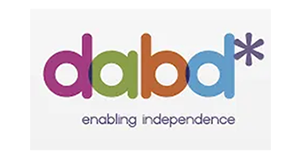
Kids Patch Club
A weekend club running every Saturday and selected Sundays for children and young people aged 5+ with disabilities and/or additional needs.
- Web: Kids Patch Club (link opens in new window)
- Email:
This email address is being protected from spambots. You need JavaScript enabled to view it. - Tel: 0330 054 2500

DABD
A local charity offering a wide range of services and advice for families and young people including, benefit advice and respite services.
- Web: www.dabd.org.uk (link opens in new window)
- Email:
This email address is being protected from spambots. You need JavaScript enabled to view it. - Tel: 0330 054 2500
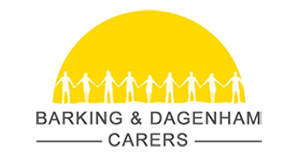
Barking and Dagenham Carers
Advice, information and support for carers.
Young carers group for young people aged 8-19.
- Web: carerscentre.org.uk (link opens in new window)
- Email:
This email address is being protected from spambots. You need JavaScript enabled to view it. - Tel: 020 8593 4422

Just Say
Barking and Dagenham Parent Carer Forum for parents and carers of disabled children and young people and those with SEND.
- Web: www.justsayforum.online (link opens in new window)
- Email:
This email address is being protected from spambots. You need JavaScript enabled to view it. - Tel: 07936851199
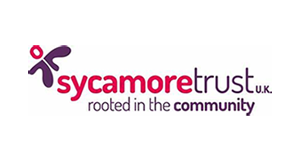
Sycamore Trust
A charity supporting the needs of individuals and families across Barking and Dagenham, Havering and Redbridge for whom autism is a part of daily life.
- Web: www.sycamoretrust.org.uk (link opens in new window)
- Email:
This email address is being protected from spambots. You need JavaScript enabled to view it. - Tel: 020 8517 9317





